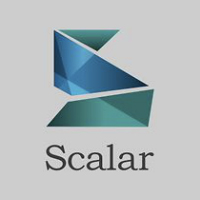 Scalar is an online platform built by the Alliance for Networking Visual Culture (ANVC) centered at USC that facilitates the creation of media-rich scholarly publications. The software has only recently entered public beta, however versions have been operational since 2010 that have led to a number of works, many sponsored by scholarly organizations and academic presses. Last month’s public launch has garnered new attention to the platform, and this week PCMag marked Scalar as an Editors’ Choice along with a 4.5/5 star “excellent rating.”
Scalar is an online platform built by the Alliance for Networking Visual Culture (ANVC) centered at USC that facilitates the creation of media-rich scholarly publications. The software has only recently entered public beta, however versions have been operational since 2010 that have led to a number of works, many sponsored by scholarly organizations and academic presses. Last month’s public launch has garnered new attention to the platform, and this week PCMag marked Scalar as an Editors’ Choice along with a 4.5/5 star “excellent rating.”
As analyst William Fenton writes in support of the accolade:
Before it even became available, Scalar had the Digital Humanities community abuzz. A product of USC’s Alliance for Networking Visual Culture, Scalar (Free) was heralded as a groundbreaking publishing platform that would empower users to chart non-linear paths though a pastiche of Web-born content and media—all without onerous technical expertise. After using the open beta for nearly a month, I am happy to report that Scalar achieves, and perhaps surpasses, the scuttlebutt.
Though Still Water isn’t a Scalar sponsor, the software and its network are closely aligned with the lab. Scalar’s Info Design Director and co-principal developer is Craig Dietrich, a Still Water Senior Researcher. Also on the team is long-time Still Water Senior Researcher John Bell, who developed Scalar’s authentication API that allows outside developers to layer custom interfaces on top of a Scalar project, such as The Knotted Line released earlier this year. Furthermore, Still Water Co-Director Jon Ippolito was a 2005 fellow at the Vectors Journal, a precursor organization to the ANVC. During his fellowship Ippolito developed ThoughtMesh, the first publishing platform produced for Vectors that, like Scalar, provides paths through scholarly content across the web.
Scalar is a unique entry into the Content Management System (CMS) scene. Like other CMS’ such as WordPress, users can author pages and attach properties such as tags and annotations. However, Scalar extends these concepts into all areas of production and scholars can exploit them to create complex narratives. As Fenton describes:
As Comments, Annotations, and Versions indicate, Scalar is not just an impressive Web-publishing platform, but also a dynamic, living repository. Just as Authors can capture media from across the Web, carve it up into Paths, and foreground items using Views, readers can contribute to the repository, re-envision that space via Views, and chart their own course through the content. Depending upon the amount of content and associations you add, Scalar can become labyrinthine in structure, and, given its beta status, scant documentation exists should you find yourself lost.
In Scalar, any piece of content (page or media) has the ability to take on behaviors; any page can tag another, or become an annotation of a video, or be grouped by another page into a linear sequence named paths. Combined with Scalar’s direct technical relationships with partner archives such as Internet Archive, Critical Commons, and others such as YouTube and Prezi, authors can produce web-based projects that incorporate content from a variety of sources across and are delivered in complex and often overlapping relationships.
Full article at: http://www.pcmag.com/article2/0,2817,2419697,00.asp

Blogs/Flickr/Facebook chronological. Choose your own path w Scalar. RT @stillwaternet Scalar a PCMag Editors’ Choice http://t.co/TfshQgCLoh
RT @jonippolito: Blogs/Flickr/Facebook chronological. Choose your own path w Scalar. RT @stillwaternet Scalar a PCMag Editors’ Choice http…
RT @jonippolito: Blogs/Flickr/Facebook chronological. Choose your own path w Scalar. RT @stillwaternet Scalar a PCMag Editors’ Choice http…
RT @jonippolito: Blogs/Flickr/Facebook chronological. Choose your own path w Scalar. RT @stillwaternet Scalar a PCMag Editors’ Choice http…
RT @jonippolito: Blogs/Flickr/Facebook chronological. Choose your own path w Scalar. RT @stillwaternet Scalar a PCMag Editors’ Choice http…
We use Scalar in our #DigitalCuration classes. It’s an ebook that, well, scales. “Scalar a PCMag Editors’ Choice” http://t.co/xaFVAFR4AO
RT @DigitCurator: We use Scalar in our #DigitalCuration classes. It’s an ebook that, well, scales. “Scalar a PCMag Editors’ Choice” http://…